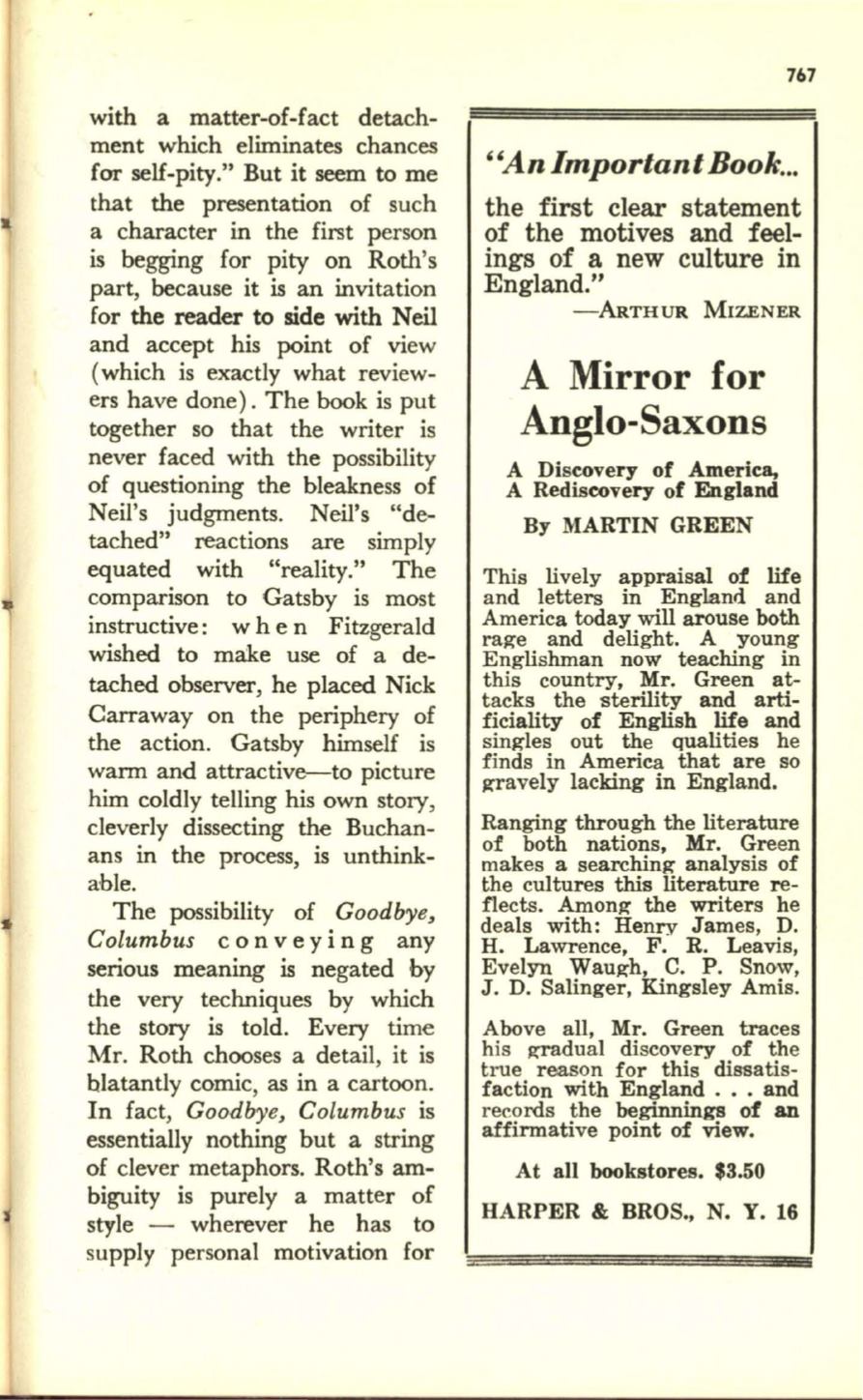
•
with a matter-of-fact detach–
ment which eliminates chances
for self-pity." But it seem to me
that the presentation of such
a character in the first person
is begging for pity on Roth's
part, because it
is
an invitation
for the reader to side with Neil
and accept his point of view
(which is exactly what review–
ers have done). The book is put
together so that the writer is
never faced with the possibility
of questioning the bleakness of
Neil's judgments. Neil's "de–
tached" reactions are simply
equated with "reality." The
comparison to Gatsby is most
instructive: w hen Fitzgerald
wished to make use of a de–
tached observer, he placed Nick
Carraway on the periphery of
the action. Gatsby himself is
warm and attractive-to picture
him coldly telling his own story,
cleverly dissecting the Buchan–
ans in the process,
is
unthink–
able.
The possibility of
Goodbye,
Columbus
con v e yin g any
serious meaning
is
negated by
the very techniques by which
the story is told. Every time
Mr. Roth chooses a detail, it is
blatantly comic, as in a cartoon.
In fact,
Goodbye, Columbus
is
essentially nothing but a string
of clever metaphors. Roth's am–
biguity is purely a matter of
style - wherever he has to
supply personal motivation for
767
"An
Important
Book...
the first clear statement
of the motives and feel–
ings of a new culture in
England."
-ARTHUR MI2'.ENER
A Mirror for
Anglo-Saxons
A Discovery of America,
A Rediscovery of England
By MARTIN GREEN
This lively appraisal of life
and letters in England and
America today will arouse both
rage and delight. A young
Englishman now teaching in
this country, Mr. Green at–
tacks the sterility and arti–
ficiality of English life and
singles out the qualities he
finds in America that are so
gravely lacking in England.
Ranging through the literature
of both nations, Mr. Green
makes a searching analysis of
the cultures this literature re–
flects. Among the writers he
deals with: Henry James, D.
H. Lawrence, F. R. Leavis,
Evelyn Waugh, C. P. Snow,
J.
D. Salinger, Kingsley Amis.
Above all, Mr. Green traces
his gradual discovery of the
true reason for this dissatis–
faction with England ... and
records the beginnings of an
affirmative point of view.
At all bookstores. $3.50
HARPER
&
BROS., N. Y. 16


